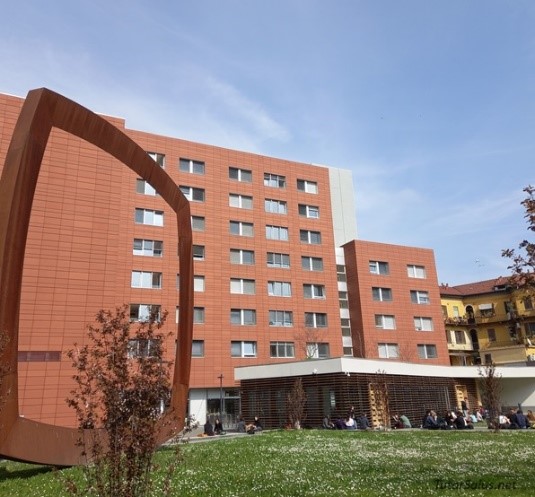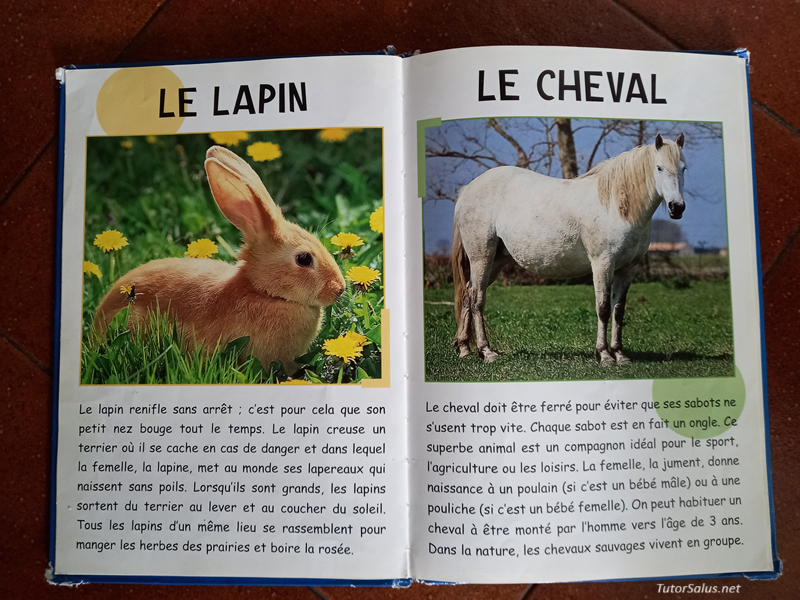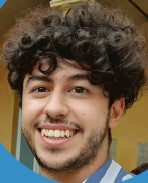
In the photo, gardens at the ‘Università Bocconi’ of Milan, where ‘NEXT Milan Forum’ 2024 helded on last March 18 and 19.[1]
Flash on a recent, complex and rightly ambitious event, intended to involve young people in citizenship, as a privileged area for the implementation of favourable and enriching projects : AI and business, sustainability and the reconstruction of prosperity beyond the Crises, disabilities and wounds from wars, cooperation and security were the topics touched on, starting from thinking over Europe. Analyses, reports, interventions presented by world-class speakers and not only from Europe, have identified the indispensable crossroads - and perceived first and foremost individually - between cost and investment : to develop a progressive awareness of this crossroads and the possible initiatives allows us to empower humans, discouraging deviant manipulations.
Who would then guess that two young athletes, with their very personal unexpected recovery, represented perhaps the most convincing goal of an event designed for Universities ?
Be aware of an experience that you would like to remove, but that leads inextinguishable marks on your body and mind : what could be more difficult, more provocative, more challenging in the life ? The absence of friends, that’s what there is : it is the response of those who - very young - only formally accept the category of ‘Paralympic Athlete’.
Mourning is allowed but not melancholy, is it ever possible ? In a strong experience of pain you have focused on someone who knew how to make himself, or herself, reliable[2] : it certainly wasn’t immediately possible but it is unreliability that constitutes a truly destabilizing trauma with unpredictable consequences.
How much courage does it take to say ‘mutilation’ about your own body?[3] Until another courage – rare indeed – which is that of recognizing as destabilizing your lying that you no longer love life, your wounded, damaged, violated body.
And pain also attracts social and generic empathy, pain can make you malleable to external surrogates, provided you betray the original alliance with your body : accustomed as they are to training over time and with work, these young athletes were not satisfied.
Furthermore, reconstruction is an investment to which resources - perhaps already committed - can be allocated with foresight, but whose effects are a safe, individual and social surplus, therefore very precious and crucial for the crossroads they entail between cost and investment.
The novelty of a, of any strong restart, opts first of all to discard the word ‘resilience’, as this doesn't concern one's own thinking, and instead collect everything that takes on a specific weight in the new life : there is no longer your solid reference group[4] and many fall, their image fades but those who are confirmed present come in to team up, even time suddenly and definitely takes on a conspicuous specific weight. Therefore ‘recovery’ is truly available to everyone but it’s not for everyone to 'team up’ rather than to ‘do group’ where no recovery lasts long.
How do you prepare yourself to for a critical spirit, when even University often doesn’t help ? This question, came from the audience, seemed destined to remain suspended but the answer came from an unexpected elsewhere – those athletes who, who knows why, climbed onto an ambitious University stage : an answer so subtle and light that it could even have been missed by those who were already moving away without cathartic resolution, and yet waiting after hours of patient listening.
Too ‘easy’ – another word that should be banned in any recovery - is waiting for an artificial intelligence able to replace us : decisions that are made more and more quickly may prove formally correct in the short term, but risk causing that delicate balances, such as political ones - interconnected, global and therefore very close to us - then collapse.[5]
‘Emergency’ will perhaps regain the original sense of something-that-emerges because it wasn’t there before and now it is there[6], without arrogance and without pretension : something that needs to be studied – without academicism and also appointing new places – because ‘I care of it’, then out of budget.
Baton therefore offered to those who know team up.
Marina Bilotta Membretti / Cernusco sul Naviglio – May 10, 2024
[1] ‘NEXT Milan Forum’ 2024 - Empowering Future Leaders’ included an integration of different sections : the section ‘Get inspired’, in which world-class speakers provided insights and analysis to grow awareness and positive change; the section ‘Make your voice heard’ in which the audience expressed its views and dialogued with the invited speakers; the section ‘Idea slam’ proposing a competition among the future selected leaders (20-35 years old) for new ideas to be shared with G7 leaders on key global challenges. (The event was organized under the patronage of ‘Regione Lombardia’ and the Municipality of Milan; co-hosts : ISPI ‘Istituto per gli Studi di Politica Internazionale’, ‘Università Bocconi’-Milano, OECD 'Organization for Economic Cooperation and Development', Deloitte Touche Tohmatsu, KPMG Italia, Fondazione Cariplo).
[2] From the speech given by Martina Caironi, paralympic athlete.
[3] From the speech given by Simone Barlaam, paralympic athlete.
[4] Again from the speech given by Simone Barlaam, paralympic athlete.
[5] From the speech given by Peter Maurer president of the Board, Basel Institute on Governance; former president, International Committee of the Red Cross.
[6] From the speech given by Bo Viktor Nylund director, UNICEF Innocenti – Global Office of Research and Foresight





